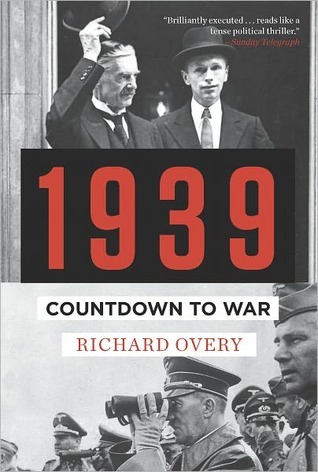Kindle Notes & Highlights
The war that broke out in September 1939 can only be properly explained in the context of the deteriorating European order during the 1930s, when economic crisis, the rise of authoritarian dictatorships, deep ideological divisions, nationalist rivalries and the collapse of the efforts of the League of Nations to preserve peace all combined to make a major conflict probable.
Above all it was Poland’s intransigent refusal to make any concessions to its powerful German neighbour that made war almost certain.
From Poland’s point of view, the price of Soviet co-operation might well have been as expensive as the failure to secure it at all.
Polish territory had been divided between Germans and Russians since the eighteenth century and the new state was only twenty years old. Destroying Poland was an acceptable outcome to both sides.
The truth gradually became clear to the Polish leadership: the West had never intended to fight in their defence.
Poland was betrayed by war just as Czechoslovakia was betrayed by peace.
In telling Hitler plainly that Britain would fight for Poland, he continued, he wanted to avoid any ‘tragic misunderstanding’.1 In a wartime note on British foreign policy, Lord Halifax argued that he thought Hitler might have been deterred ‘if, as we had failed to do in 1914, we made it unmistakably clear that the particular acts of aggression which he was believed to have in mind, would result in general war’.2 When Hitler attacked Poland, Britain and France duly honoured their pledge to defend Poland’s independence and war resulted.
Hitler wanted the war with Poland to flesh out the central European empire and open the way for the eventual confrontation with Stalin’s Soviet Union.8
by August 1939 he had persuaded himself that Poland was an enemy that deserved to be conquered and punished, and he failed to understand what business it was of Britain and France to become involved.
his conviction that in a battle of wills between the two sides, his would prevail and the West would recoil.
Hitler took the risk while ‘in the depths of his being hoping against hope that Britain would step back from the brink’.11
The simple answer here, of course, is that Poland in defying Hitler accepted war; and because Polish independence had been guaranteed in March 1939, Britain and France had an obligation to fight Germany as well.
the war cost the British their empire and created the conditions for fifty years of Cold War and communist domination of Eastern Europe and Asia.
everything about British and French efforts first to appease, then to deter, Germany was intended to avoid instigating a second Great War in Europe. Deterrence in the end failed, but the obverse of every strategy to deter is the willingness to use force.
Germany in particular represented a profound threat to their existing way of life and the values that they wished to see observed in the conduct of international affairs.
All of these sentiments were directed at Hitler rather than the Germans,


